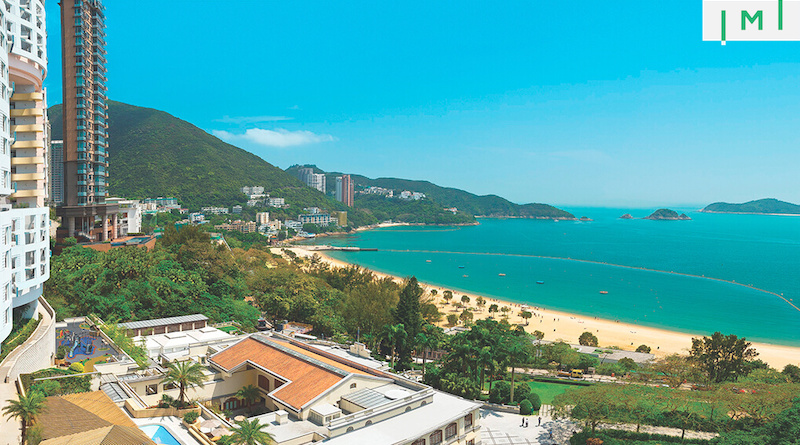Russians Excluded from Migration Programs and Banking in the West Should Consider Hong Kong

Stephen D. Barnes
Hong Kong
One consequence of the rapid geopolitical shifts of the last two years has been the exclusion of Russian nationals from many immigration programs across the globe, particularly from European Golden Visas and Caribbean Citizenship by Investment Programs. This is not, however, the case in Hong Kong, China’s semi-autonomous financial powerhouse.
While Hong Kong (still) operates under the “One Country, Two Systems” principle, enjoying significant legal autonomy from the rest of China, Beijing ultimately sets the tone for Hong Kong’s relationships with other countries. At the moment, Beijing considers Russia a strategic partner, one with which it has resolved to “jointly respond to international challenges and illegitimate sanctions.” Just this week, President Xi met Russian Prime Minister Mishustin to advance closer economic collaboration. Hong Kong, meanwhile, is committed to attracting investment and skills from around the world.
In consequence, Hong Kong welcomes Russian nationals, their businesses, and their capital.
Capital-based routes to permanent residency in Hong Kong

Hong Kong offers highly flexible and often overlooked capital-based residency opportunities, including passive investment, active investment, and entrepreneurship. With the right strategy and management of one’s ordinary residence footprint, securing permanent residency in Hong Kong after seven years with little overall time spent in-country is possible.
Here are the three capital-based opportunities for Russian nationals to secure temporary (and eventually permanent) residency in Hong Kong and, with it, access to banking services as bona fide residents of the HKSAR.
1) Hong Kong Capital Investment Entrant Scheme (CIES)
The CIES allows Russian individuals to obtain residency by making a substantial capital investment in Hong Kong. The new Scheme, set to be reinstated in 2023 after eight years on hold, will require a higher investment amount than the previous HKD10 million (US$1.3m) required under the old Scheme. While the precise qualifying amounts for the new CIES remain unpublished, the government has indicated it will be at least double the previous minimum. Under the CIES, successful applicants and their dependents will receive a two-year visa, renewable for three-year periods, with the possibility of permanent residency after seven years.
I will write more on this once the program details are released in the coming weeks.
2) Business Investment as an entrepreneur (starting a new business)
Russian business owners can establish a new branch or subsidiary operation in Hong Kong and obtain a business investment visa. Successful applicants and their dependents receive a two-year visa, renewable in three-year increments, with the possibility of permanent residency after seven years. While there is no minimum capital requirement, the applicant needs to provide a business plan and realistic revenue forecasts, and should invest an amount that corresponds to the capital needs such a business might have. In many ways, qualification requirements are similar to those of the US E2 visa, with which many IMI readers are familiar.
3) Business Investment as an Entrepreneur (Joining an Existing Business)
Russian business owners and entrepreneurs can secure a business investment visa by joining an existing Hong Kong business. Successful applicants and their dependents receive a two-year visa, renewable in three-year increments, with the possibility of permanent residency after seven years. There is no minimum capital requirement, but each application will depend on the capital need of the enterprise into which the applicant invests.
Accompanying Family – Eligible Dependents
Unmarried children under 18 and legal spouses are eligible dependents. Permanent residence is granted after maintaining a qualifying residence visa continuously for seven years. Dependent visas for elderly parents (60 years or older) are available after the sponsor attains PR.
Two Case Studies Since February 24, 2022
Starting a New Business in Hong Kong
A Russian national who owns and operates a business in electronic component design established an entity in Hong Kong and created the conditions necessary for a successful entrepreneur visa application for himself, along with dependent visas for his accompanying family. Upon the execution of his business plan, he also obtained a follow-up employment visa for one of his key managers in Moscow, allowing the manager to join the new business in Hong Kong, and enabling the transfer of the manager’s accompanying family as well. The business and the client opened bank accounts in Hong Kong and have settled since in normally. The individual is now pursuing Australian residency in addition to his Hong Kong residency.
Joining an Existing Business in Hong Kong
Another Russian originally established a Hong Kong subsidiary of his international software development/SaaS enterprise in 2017 and transferred his family to Hong Kong with him under an entrepreneur visa. The business operated for eighteen months before the family decided to move to Portugal to pursue the Golden Visa. The client left a small local management team behind to run the business and gave up his Hong Kong residency. During the pandemic years, the management team left the business (emigrating to Canada and the UK), and the business was operated remotely from Dubai. In the meantime, the spouse needed to resume her residency in Hong Kong to expand the business and family banking facilities. As she is a lawyer by profession and the Hong Kong business is part of their international group controlled by a family trust, she was able to secure an entrepreneur visa (compared to a dependent visa the first time around) for her to re-establish her residency once more, enabling her to complete the banking rationale underpinning the need for the reinstated residency.
Hong Kong Banking Services and Requirements
Hong Kong banks must provide banking services to Hong Kong residents and undertake Customer Due Diligence (“CDD”) measures and ongoing monitoring according to the Anti-Money Laundering and Counter-Terrorist Financing Ordinance (“AML/CFT”) and the AML/CFT Guideline.
Some banks must also comply with requirements or standards mandated by their head offices or overseas authorities, leading to varying account opening requirements.
The Hong Kong Monetary Authority states that banks should not:
- Reject account applications without conducting a CDD assessment;
- Make unreasonable requests during CDD measures, such as requiring all directors and beneficial owners to be present, mandating certification by a Hong Kong certifier, or requesting excessive details on the source of wealth;
- Make the purchase of wealth management investment or insurance products or large initial deposits a condition for opening an account.
Hong Kong Bank-Account Opening
Hong Kong banks are not universally unreceptive to Russian clients; those connected to the Chinese government are easier to deal with.
These banks include:
- Bank of China (Hong Kong) Limited (BOCHK).
- Industrial and Commercial Bank of China (Asia) Limited (ICBC Asia).
- China Construction Bank (Asia) Corporation Limited (CCB Asia).
- Agricultural Bank of China (Asia) Limited (ABC Asia).
- Bank of Communications Co., Ltd. (Hong Kong Branch) (BOCOM).
Ultimately, banks will consider applications based on normal CDD requirements. The decision to accept a client depends on banking risk assessment, the intended use of the account, the background of the client, and the total prospect of funds under management. Naturally, if a Russian client has already acquired a 2nd citizenship, this obviates many of the challenges facing Russian nationals and makes the account opening procedures more streamlined and predictable.
“Unlimited friendship”
As international RCBI opportunities become increasingly limited for Russian entrepreneurs, business owners, and HNWIs, Hong Kong extends a warm welcome to those seeking to expand their businesses, residency options, and international banking portfolios into the HKSAR.
As President Xi and President Putin champion “unlimited friendship” between their nations, now is the perfect time for Russian nationals to join Hong Kong’s thriving ecosystem and contribute to the prosperity ahead.
The Hong Kong Immigration Department operates with efficiency, professionalism, and impartiality, offering predictable, transparent residency programmes, and the partnership between Russia and Hong Kong, the most international part of China, is set to leave a substantial and enduring economic imprint in the emerging multipolar world order.
Would you like to contribute an article to IMI?
IMI relies on a global network of specialist contributors to keep our audience abreast of investment migration developments in every corner of the globe. If you have special expertise, or you’d simply like to voice your opinion, why not contribute an article to IMI?
To learn how to proceed, see our Article Contribution Guidelines.
Stephen is the co-founder of the Hong Kong Visa Centre, which since 2010 has leveraged pioneering technological solutions to help clients from across the world obtain residency in Hong Kong.


